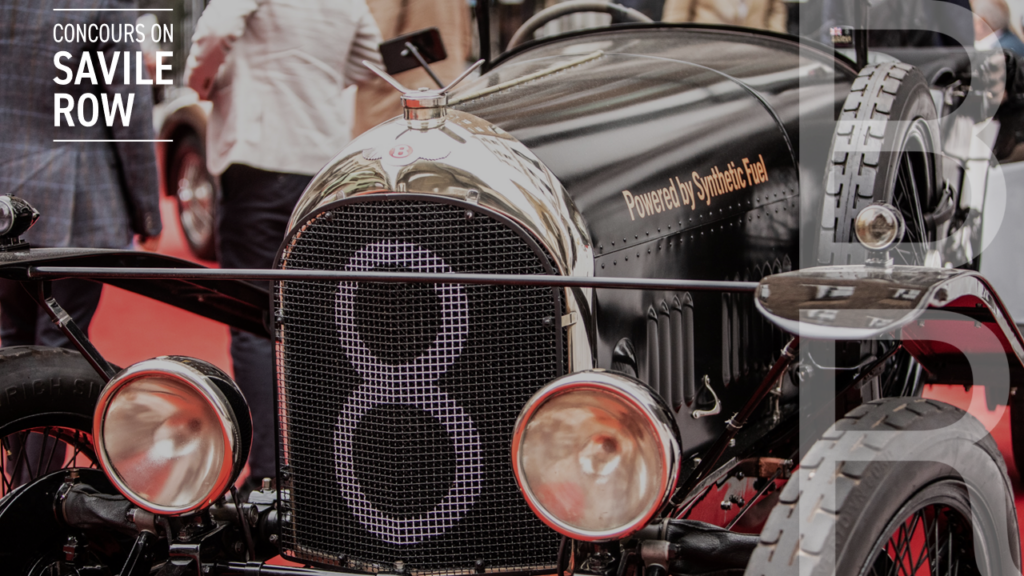Classic Car Tax Reliefs & Customs Duty Obligations
Susan Spash and Simon Sutcliffe look at key tax considerations and Customs Duty impacts of owning a classic car
Blick Rothenberg at Concours on Savile Row 2023
Blick Rothenberg recently sponsored a seminar at the Royal Academy of Arts on “Cars as Art” as part of the 2023 Concours on Savile Row event.
Susan Spash and Simon Sutcliffe look at key tax considerations and Customs Duty impacts of owning a classic car.

Classic Car Tax Reliefs & Customs Duty Obligations
The most prized and sought-after classic cars face the same financial and market challenges as artwork hanging on gallery walls. However, there are some key taxation and VAT exemptions and reliefs to consider, as well as Customs obligations when looking to move your car across borders.
Taxation benefits
Cars are functional objects, designed for transport rather than pure aesthetics. However, like collections of art, collected classic cars are often an expression of their owner and deeply loved, but they come with a limited lifespan – which can be turned to the owner’s benefit in terms of taxation.
These include both personal tax and VAT exemptions and reliefs.
Personal Tax
- Cars (classic or not) fall outside the scope of Capital Gains Tax
- Beware the risk of being perceived by HMRC as trading in cars with the related tax implications
- While within the scope of Inheritance tax, with planning the classic car may be passed down a generation whilst not losing the opportunity to still take it for a spin
- A collection of classic cars with, for example, national interest may be eligible for Inheritance Tax Heritage Relief
- Owners of cars over 40 years old can apply to stop paying Vehicle Tax and do not need to get an MOT
VAT
- A reduced VAT rate of 5% applies to the importation of qualifying classic cars.
- Classic cars are for VAT purposes defined as cars at least 30 years old.
- HMRC also allow the reduced import rate for a car not more than 30 years old where it is:
- extremely rare
- is a limited edition
- is owned or has been owned by a famous person
- has been used in a film or historical event, or
- it has achieved significant sporting success at a prestigious or international event
- Classic cars qualify for the VAT margin scheme when sold as a business asset
- They can also qualify for VAT relief when temporarily imported to the UK for repair or restoration.
Customs considerations
Moving classic cars across international borders, especially post-Brexit, creates VAT and customs issues that need to be addressed.
Being organised and understanding your potential customs obligations early on is key to moving a classic car, or any vehicle, across borders.
Aside from deciding if your car is deemed as a classic car for customs purposes – it doesn’t always have to be an ‘automotive unicorn’ – there are a number of customs regimes that can also help and guide an owner as to how to legitimately import and drive their car abroad temporarily or exhibit it at events and meets.”
These include:
- The granting of a zero rate of Customs Duty on classic cars over 30 years old, also applies to vehicles deemed as ‘collectors’ items’. These ‘collectors’ items’ vehicles do not have to abide by the 30-year qualification rule. However, they have other qualifying criteria regarding their history and sporting heritage.
- Qualifying classic cars have to be in their original state and be of a model that is no longer in production.
- The zero rate of Customs Duty also extends to parts for these cars. These also have to be original, no longer in production and meet the 30-year qualification rule.
- Other reliefs are available that zero both Customs Duty and Import VAT when cars move across frontiers. ‘Transfer Of Residence Relief’, ‘Inherited Goods Relief’ and ‘Temporary Admission’/Carnets can be used for either permanent or temporary movements of vehicles for such events as exhibitions or use whilst the owner is in UK. Thought should be given if the UK-resident owner wants to import their overseas based vehicle and drive it in the UK under these regimes. Regimes such as Inward Processing can be used to import cars (Outward Processing for exports) for repair or restoration will relieve all import taxes whilst the car is undergoing the process.
- The UK-EU Trade and Co-operation Agreement allows vehicles that can prove their UK or EU origin, to be moved without the payment of customs duty provided that that are in an unaltered state since initial exportation.
Would you like to know more?
If you would like to discuss the personal tax or VAT reliefs or exemptions for your classic car, or how to best manage potential Customs Duty obligations, please get in touch with our team.
Our experts
Contact our team
You may also be interested in

Further Opportunities for US Tech Investment in the UK

Changes to FRS102 and it’s alignment to International standards















